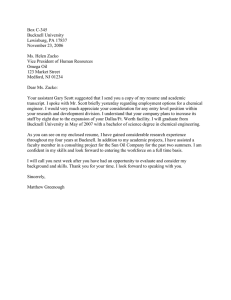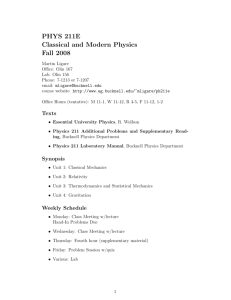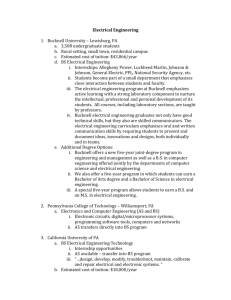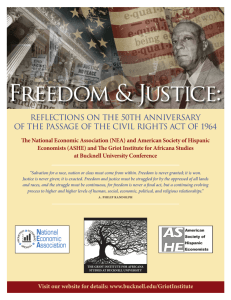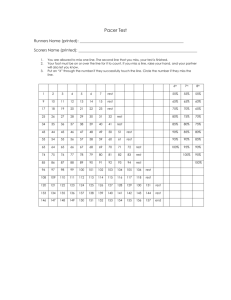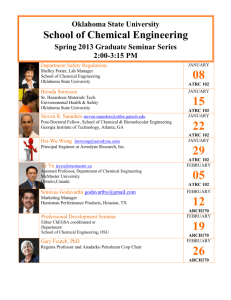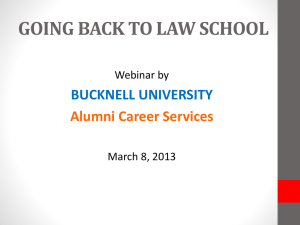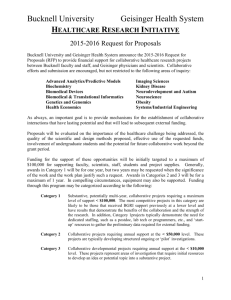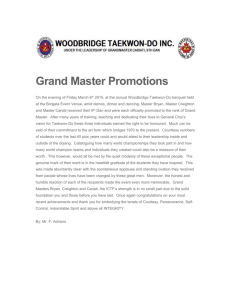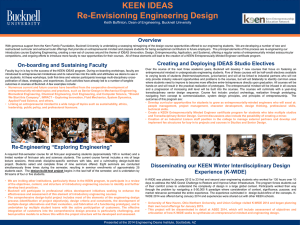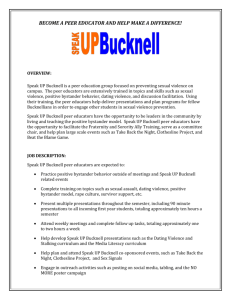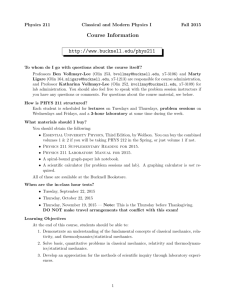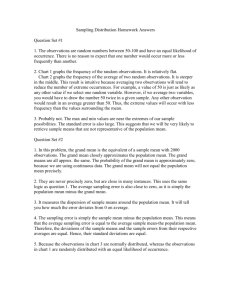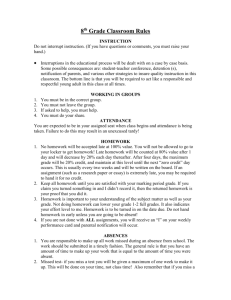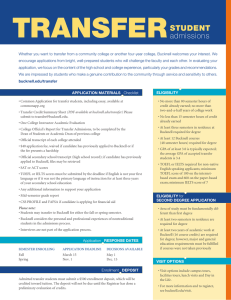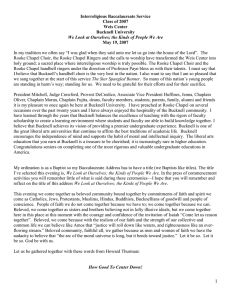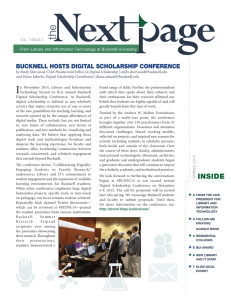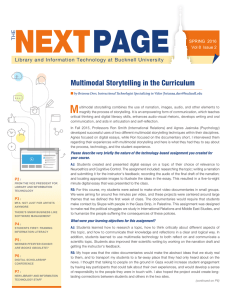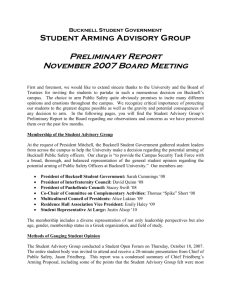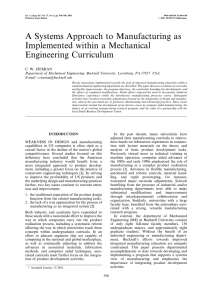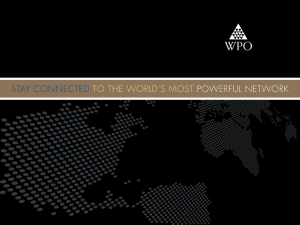Grand Challenges - Facstaff Bucknell
advertisement
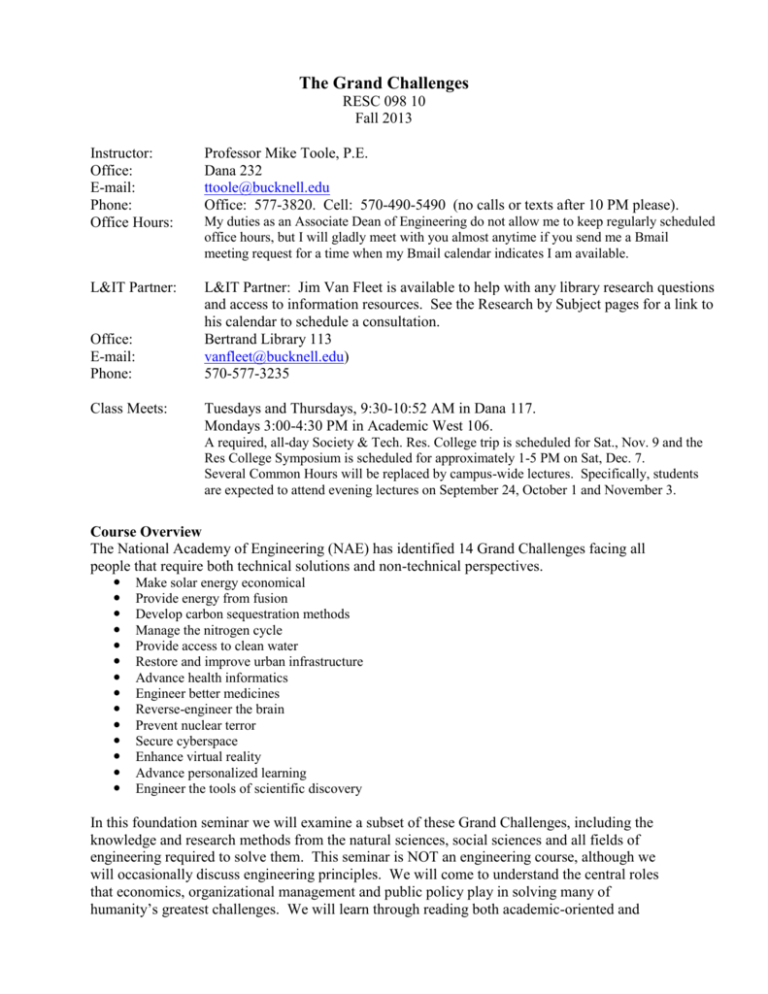
The Grand Challenges RESC 098 10 Fall 2013 Instructor: Office: E-mail: Phone: Office Hours: Professor Mike Toole, P.E. Dana 232 ttoole@bucknell.edu Office: 577-3820. Cell: 570-490-5490 (no calls or texts after 10 PM please). L&IT Partner: L&IT Partner: Jim Van Fleet is available to help with any library research questions and access to information resources. See the Research by Subject pages for a link to his calendar to schedule a consultation. Bertrand Library 113 vanfleet@bucknell.edu) 570-577-3235 Office: E-mail: Phone: Class Meets: My duties as an Associate Dean of Engineering do not allow me to keep regularly scheduled office hours, but I will gladly meet with you almost anytime if you send me a Bmail meeting request for a time when my Bmail calendar indicates I am available. Tuesdays and Thursdays, 9:30-10:52 AM in Dana 117. Mondays 3:00-4:30 PM in Academic West 106. A required, all-day Society & Tech. Res. College trip is scheduled for Sat., Nov. 9 and the Res College Symposium is scheduled for approximately 1-5 PM on Sat, Dec. 7. Several Common Hours will be replaced by campus-wide lectures. Specifically, students are expected to attend evening lectures on September 24, October 1 and November 3. Course Overview The National Academy of Engineering (NAE) has identified 14 Grand Challenges facing all people that require both technical solutions and non-technical perspectives. Make solar energy economical Provide energy from fusion Develop carbon sequestration methods Manage the nitrogen cycle Provide access to clean water Restore and improve urban infrastructure Advance health informatics Engineer better medicines Reverse-engineer the brain Prevent nuclear terror Secure cyberspace Enhance virtual reality Advance personalized learning Engineer the tools of scientific discovery In this foundation seminar we will examine a subset of these Grand Challenges, including the knowledge and research methods from the natural sciences, social sciences and all fields of engineering required to solve them. This seminar is NOT an engineering course, although we will occasionally discuss engineering principles. We will come to understand the central roles that economics, organizational management and public policy play in solving many of humanity’s greatest challenges. We will learn through reading both academic-oriented and popular press literature, classroom discussion, an occasional video, short writing exercises and a longer report related to a Grand Challenge that you will choose. A four-class module that focuses on sustainability will be taught by the four Soc-Tech Senior Fellows. Engineering students who earn a B or higher in this class are expected to be accepted into Bucknell’s new Grand Challenges Scholars Program without a formal application. Foundation Seminar Course Objectives This course is part of the Residential College on Society and Technology, which explores how technology affects our everyday lives. As such, students will participate in a weekly common hour with the other foundation seminar groups in the college. In these common hours, we will listen to interesting speakers, watch films related to our college’s theme, have dinner discussions, and engage in other rewarding activities. We will also take at least one field trip and share a common set of classes that will focus on various aspects of sustainability. We will use those experiences to broaden our exposure to the effects of technology on our modern world and to build friendships with the other students living in the SocTech dorm. Foundation seminars introduce first-year students to the learning community in which they are expected to participate actively while at Bucknell. Through a wide variety of activities, students come to value and to emulate the characteristics of an engaged learner. In particular, they take responsibility for their own learning and understand how specific activities are related to the learning goals of a course. They take an active role in evaluating their own learning, and if necessary, seek assistance in order to achieve the learning goals. Students explore academic research methods and the use of information retrieval techniques. They practice critical reading, analysis, and evaluation of information sources. They can apply and transfer knowledge across disciplines and can make connections at various levels. They are aware that learning is a social act that requires collaboration and self-awareness as well as being receptive to constructive criticism and alternative ideas or solutions. Students improve their ability to analyze, evaluate, and interpret materials they encounter to synthesize and communicate the results of their studies, and to create works of their own. This process fosters critical thinking skills complemented by the creative dimensions of imagination and insight. Through exposure to different perspectives, students come to realize the limitations of a single viewpoint, while learning to construct persuasive arguments based on close analysis of multiple viewpoints. Learning Outcomes: 1. Students will develop writing, reading, speaking, listening, and information literacy skills necessary for collegiate-level academic work. 2. Students will develop capacities for independent academic work and become self-regulated learners. Writing Program Course Objectives The Writing Program aims to develop students' mastery of written language. As a W1 course, this class will include: 1. Recurring instruction in writing 2. Teaching of the writing process: planning, composing, revising, and editing 3. Teaching the importance of expository skills 4. Frequent writing 5. Teaching the use of writing as thinking and as a means of creating and processing knowledge These criteria for W1 courses are designed to support students' achievement of the learning outcomes for the Writing Program by the time of graduation. These learning outcomes, referred to as Writing Program Outcomes (WPOs), are as follows: WPO 1: students produce effective written communication in terms of expository skills (i.e., organization, clarity of expression, achieving purposes, and addressing intended audiences) and use of conventions relevant to particular disciplines or genres. WPO 2: students practice writing as a process that includes planning, composing, revising, and editing; and WPO 3: students use writing as an instrument for learning. Course Textbooks: None. Course Grading In-class examinations (2) Research paper and presentation Other assignments Class participation 40% 40% 10% 10% Course Policies 1. Class attendance is very important. Unexcused absences will be reflected in the class participation portion of your grade. Please email me ahead of time if you know you will miss class. Students who repeatedly miss class due to illness will be asked to provide a note from Health Services. Students who must miss class to attend university-sanctioned events may miss up to two classes before their absence will be considered unexcused. 2. My teaching method assumes that a significant portion of a student’s learning can and should occur outside of the classroom. You will receive preparation objectives for nearly all class sessions, generally in the form of questions. You are expected to read the assigned text with these objectives in mind then demonstrate your preparation by volunteering answers to verbal questions I pose to the class. Class sessions are intended to highlight or clarify concepts in the assigned reading, not to cover every concept for which you are responsible. You are expected to let me know (preferably in class) if there is an objective that you are unsure of, regardless if I have covered it in detail in class or not. 3. I strongly recommend the following process to prepare for exams. Several days before the test, review the assigned reading and compare answers to the preparation questions with at least two other classmates. At least 24 hours before the test, email me or stop by my office to seek clarification on any questions that you are not sure about. Please be sure to include in your communication what you think is the answer to the question and who you have been studying with. I typically will not respond to questions on the day of the exam because that promotes lastminute, short-term memorization. 4. I will occasionally modify the assigned reading, preparation questions and homework. You are required to check for changes and announcements on Moodle every other day; however, I will generally send email for items that require action within 24 hours. 5. Side conversations in class are disruptive. If you need clarification on something, please ask me before the class moves onto the next topic. If you have an interesting thought or relevant experience, please share it with the class! 6. Texting is not allowed. Turn your phone on silent mode or turn it off completely. 7. I recognize that many students prefer to take class notes using a laptop computer. I encourage laptops if you can resist the temptation to be distracted by other online activities. 8. All aspects of your course work for this class are covered by the University Honor Code, as described at www.bucknell.edu/x1324.xml.
